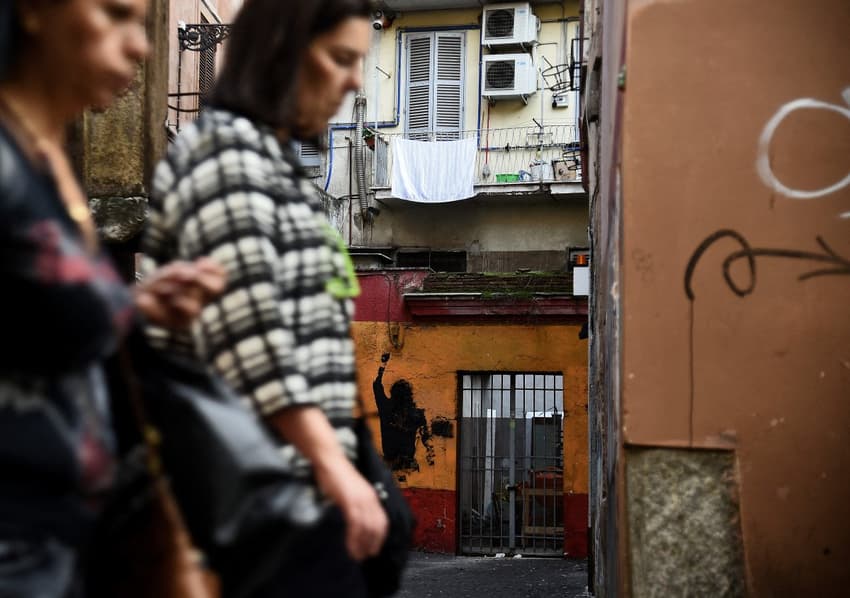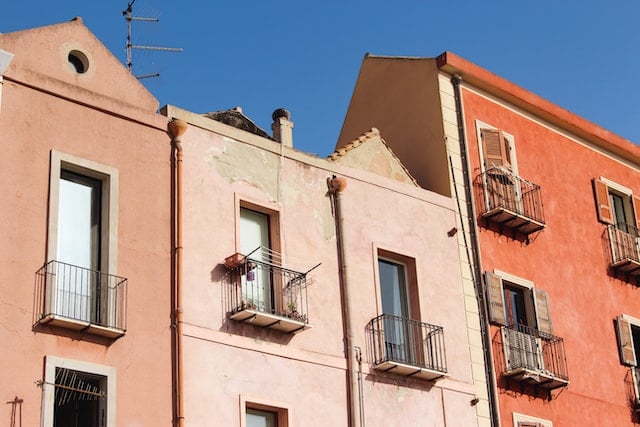Four things that make Italy a 'difficult' country to move to

Italy’s cities have been rated yet again as among the hardest places for foreign residents to settle - so what are the common complaints and are things really that bad?
Moving to Rome or Milan might sound like a dream come true, but anyone considering it may want to carefully weigh the pros and cons.
According to the latest InterNations 2023 Expat City Ranking, an annual survey of the international residents of cities in developed countries worldwide, Rome and Milan were the two ‘worst’ cities of all for foreigners to move to.
The study ranked Milan bottom out of 49 cities based on criteria including work, finances, housing, healthcare and quality of life, while Rome fared little better, coming in 48th place.
READ ALSO: Milan and Rome ranked 'worst' cities for foreigners to move to - again
This is nothing new: the InterNations survey has shown for several years running now that many foreign transplants are seriously dissatisfied with life in the two cities.
And, in a separate survey earlier in 2023, Italy as a whole was rated one of the hardest countries in the world to settle in, with only Kuwait, China, Japan and Germany scoring lower.
The few areas in which Rome and Milan were highly rated included travel opportunities and food, and Rome’s warm weather earned it some extra points - though this may only reinforce the idea of Italy as a great place to visit, rather than live long-term.
Italy’s results in the latest survey put it in stark contrast with neighbouring Spain, where the cities of Málaga, Alicante and Valencia topped the table and were rated the most desirable places to live worldwide for international residents.
So why exactly do so many international residents find Italy a tough place to get settled?
Employment
Those participating in Internations’ expat surveys tend to be of working age, and perhaps it's no surprise that they find employment opportunities lacking: it’s no secret that countless Italian graduates every year are driven abroad by Italy's chronic economic issues and lacklustre job market.
Low pay, poor job security and differences in working culture were all cited by survey participants working in Italy as reasons they were unhappy with their employment situation.
READ ALSO: ‘It’s crazy’: What to expect when you work for an Italian company
More than 60 percent of foreign workers said they think the local job market is unpromising, compared to an average of 23 percent globally.
Italy was also ranked earlier this year as one of the 'worst' countries for expats to work in, while Italian employees too say their salaries are too low.
Still, if you have your sights set on Italy, the situation isn't hopeless: there are some job opportunities out there for highly-skilled professionals. And others moving to Italy for love or the lifestyle are often able to make a living by teaching English, setting up a small business, or freelancing for international companies.
But overall it’s fair to say that few people move to Italy to advance their career, and this doesn't appear likely to change anytime soon.
Bureaucracy
Italy’s ocean of red tape is well known, and moving to any country will involve paperwork. But many people who come to Italy are unprepared for the sheer amount of it, the timescales involved, or the number of steps involved in every task.
Milan scored particularly poorly for bureaucracy in the survey, with specific difficulties reported with things like getting a visa and opening a bank account. While these are necessary tasks whichever country you move to, people living elsewhere didn’t seem to find them quite so arduous.

(Photo by ANDREAS SOLARO / AFP)
It’s not just the paperwork needed to move here, either: there’s much more to come once you’re a permanent resident. Anything from moving house to buying a car in Italy unlocks further bureaucratic requirements, and having to take time off work to complete these tasks can compound the stress.
READ ALSO: 14 mistakes foreigners make when moving to Italy
As one American resident said in their survey response: “The bureaucracy here is extremely burdensome to the point of ridiculous, in almost all aspects of life from getting a visa to getting a driver’s license and beyond."
While Italian bureaucracy is increasingly moving online, meaning less in-person queuing is required, this unfortunately doesn’t always simplify processes or make them much less time consuming.
Housing
Housing shortages and soaring rents are a major issue in cities across Europe and beyond, but again Milan scored particularly poorly here with a higher than average number of survey respondents saying it was difficult to find suitable accommodation.
This was less of an issue in Rome, though long-term rental contracts in cities across Italy are generally becoming more expensive and harder to find.
EXPLAINED: How to find a longer-term apartment rental in Italy
Plus the rules (and yes, more bureaucracy) around renting an apartment in Italy can be a lot to get your head around as a newcomer: Italian contracts are quite different to those used in countries like the US, Canada and the UK.
There’s no easy solution to this if you need to be in one of Italy’s major cities for work. But if you can work remotely or commute, you might consider living on the periphery or moving to a town within striking distance of the city instead if finding somewhere decent to live is a priority.

Renting an apartment in Italy is likely to be a very different process to anything you've encountered elsewhere. Photo by Giulia Salvaterra on Unsplash
Transport
Rome ranked especially poorly for travel and transit in the survey, and there’s no denying that the city’s public transport system has issues.
Opinions of the metro system vary, but if you need to take a bus or a tram you could be in for a long wait. Data shows that commuting by public transport in Rome takes longer than anywhere else in Italy, and is getting slower - although it's widely seen as such an unreliable option for getting to work that many Romans own scooters and cars for that purpose.
As for the roads, pedestrians as well as motorists might feel as if they’re taking their life in their hands at every junction, and finding somewhere to park in Rome can take a while: as is the case in most other cities in Italy, which has one of Europe’s highest rates of car ownership.
- The best (and worst) places to live in Italy in 2023
- OPINION: Why Milan is a much better city to live in than Rome
- ‘Why I used to hate living in Rome as a foreigner – and why I changed my mind’
In Milan the public transport system is more functional, and there is a better network of bike paths; though traffic is heavy regardless, and this contributes significantly to high levels of air pollution - another major downside for survey respondents in the city.
Overall the survey's results show that everyday life for people working in Italy's major cities is often far from easy, and not quite the 'Italian dream' ideal. Still, for some the positives of life here will far outweigh these negatives, and plenty of people do make it work regardless.
And of course Italy isn't universally rated as a difficult place to live: many international residents who live in rural areas, own property, and are retired or otherwise do not need to work say Italy offers a higher standard of living, at a lower cost, than their home countries.
What do you think of the survey's findings? Are Italian cities difficult to live in, or do the positives outweigh the negatives? Please share your thoughts in the comments section below.
Comments (1)
See Also
Moving to Rome or Milan might sound like a dream come true, but anyone considering it may want to carefully weigh the pros and cons.
According to the latest InterNations 2023 Expat City Ranking, an annual survey of the international residents of cities in developed countries worldwide, Rome and Milan were the two ‘worst’ cities of all for foreigners to move to.
The study ranked Milan bottom out of 49 cities based on criteria including work, finances, housing, healthcare and quality of life, while Rome fared little better, coming in 48th place.
READ ALSO: Milan and Rome ranked 'worst' cities for foreigners to move to - again
This is nothing new: the InterNations survey has shown for several years running now that many foreign transplants are seriously dissatisfied with life in the two cities.
And, in a separate survey earlier in 2023, Italy as a whole was rated one of the hardest countries in the world to settle in, with only Kuwait, China, Japan and Germany scoring lower.
The few areas in which Rome and Milan were highly rated included travel opportunities and food, and Rome’s warm weather earned it some extra points - though this may only reinforce the idea of Italy as a great place to visit, rather than live long-term.
Italy’s results in the latest survey put it in stark contrast with neighbouring Spain, where the cities of Málaga, Alicante and Valencia topped the table and were rated the most desirable places to live worldwide for international residents.
So why exactly do so many international residents find Italy a tough place to get settled?
Employment
Those participating in Internations’ expat surveys tend to be of working age, and perhaps it's no surprise that they find employment opportunities lacking: it’s no secret that countless Italian graduates every year are driven abroad by Italy's chronic economic issues and lacklustre job market.
Low pay, poor job security and differences in working culture were all cited by survey participants working in Italy as reasons they were unhappy with their employment situation.
READ ALSO: ‘It’s crazy’: What to expect when you work for an Italian company
More than 60 percent of foreign workers said they think the local job market is unpromising, compared to an average of 23 percent globally.
Italy was also ranked earlier this year as one of the 'worst' countries for expats to work in, while Italian employees too say their salaries are too low.
Still, if you have your sights set on Italy, the situation isn't hopeless: there are some job opportunities out there for highly-skilled professionals. And others moving to Italy for love or the lifestyle are often able to make a living by teaching English, setting up a small business, or freelancing for international companies.
But overall it’s fair to say that few people move to Italy to advance their career, and this doesn't appear likely to change anytime soon.
Bureaucracy
Italy’s ocean of red tape is well known, and moving to any country will involve paperwork. But many people who come to Italy are unprepared for the sheer amount of it, the timescales involved, or the number of steps involved in every task.
Milan scored particularly poorly for bureaucracy in the survey, with specific difficulties reported with things like getting a visa and opening a bank account. While these are necessary tasks whichever country you move to, people living elsewhere didn’t seem to find them quite so arduous.

It’s not just the paperwork needed to move here, either: there’s much more to come once you’re a permanent resident. Anything from moving house to buying a car in Italy unlocks further bureaucratic requirements, and having to take time off work to complete these tasks can compound the stress.
READ ALSO: 14 mistakes foreigners make when moving to Italy
As one American resident said in their survey response: “The bureaucracy here is extremely burdensome to the point of ridiculous, in almost all aspects of life from getting a visa to getting a driver’s license and beyond."
While Italian bureaucracy is increasingly moving online, meaning less in-person queuing is required, this unfortunately doesn’t always simplify processes or make them much less time consuming.
Housing
Housing shortages and soaring rents are a major issue in cities across Europe and beyond, but again Milan scored particularly poorly here with a higher than average number of survey respondents saying it was difficult to find suitable accommodation.
This was less of an issue in Rome, though long-term rental contracts in cities across Italy are generally becoming more expensive and harder to find.
EXPLAINED: How to find a longer-term apartment rental in Italy
Plus the rules (and yes, more bureaucracy) around renting an apartment in Italy can be a lot to get your head around as a newcomer: Italian contracts are quite different to those used in countries like the US, Canada and the UK.
There’s no easy solution to this if you need to be in one of Italy’s major cities for work. But if you can work remotely or commute, you might consider living on the periphery or moving to a town within striking distance of the city instead if finding somewhere decent to live is a priority.

Transport
Rome ranked especially poorly for travel and transit in the survey, and there’s no denying that the city’s public transport system has issues.
Opinions of the metro system vary, but if you need to take a bus or a tram you could be in for a long wait. Data shows that commuting by public transport in Rome takes longer than anywhere else in Italy, and is getting slower - although it's widely seen as such an unreliable option for getting to work that many Romans own scooters and cars for that purpose.
As for the roads, pedestrians as well as motorists might feel as if they’re taking their life in their hands at every junction, and finding somewhere to park in Rome can take a while: as is the case in most other cities in Italy, which has one of Europe’s highest rates of car ownership.
- The best (and worst) places to live in Italy in 2023
- OPINION: Why Milan is a much better city to live in than Rome
- ‘Why I used to hate living in Rome as a foreigner – and why I changed my mind’
In Milan the public transport system is more functional, and there is a better network of bike paths; though traffic is heavy regardless, and this contributes significantly to high levels of air pollution - another major downside for survey respondents in the city.
Overall the survey's results show that everyday life for people working in Italy's major cities is often far from easy, and not quite the 'Italian dream' ideal. Still, for some the positives of life here will far outweigh these negatives, and plenty of people do make it work regardless.
And of course Italy isn't universally rated as a difficult place to live: many international residents who live in rural areas, own property, and are retired or otherwise do not need to work say Italy offers a higher standard of living, at a lower cost, than their home countries.
Join the conversation in our comments section below. Share your own views and experience and if you have a question or suggestion for our journalists then email us at [email protected].
Please keep comments civil, constructive and on topic – and make sure to read our terms of use before getting involved.
Please log in here to leave a comment.